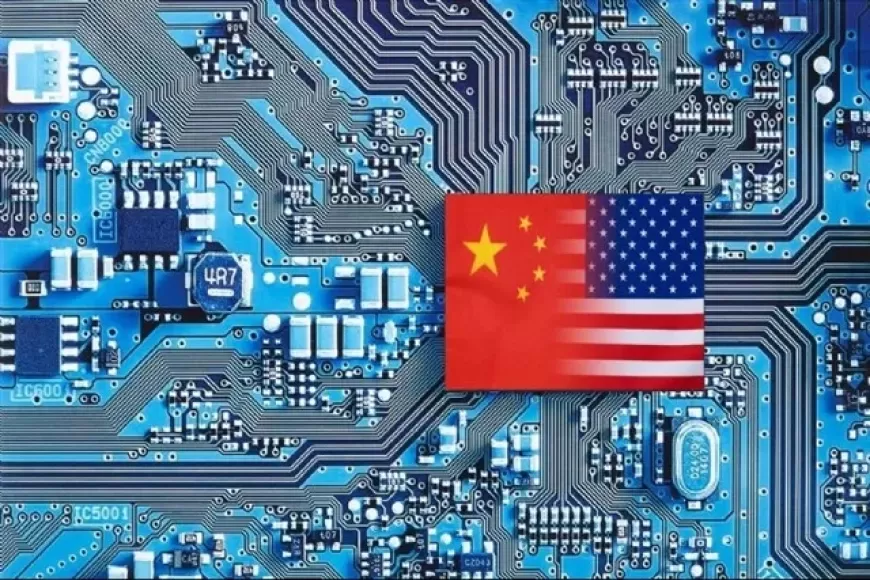US Plans New Restrictions on China's Access to Advanced AI Memory Chips
US is planning new restrictions to limit China's access to advanced AI memory chips, aiming to curb technological advancements in China

The United States is contemplating new restrictions on China's access to advanced AI memory chips and the equipment necessary to produce them. This move, expected as soon as next month, aims to intensify the tech rivalry between the world's two largest economies.
Targeted Companies and Technology
The proposed restrictions are designed to prevent companies like Micron Technology Inc., South Korea’s SK Hynix Inc., and Samsung Electronics Co. from supplying Chinese firms with high-bandwidth memory (HBM) chips. These companies are leaders in the global HBM market, which includes the latest HBM2, HBM3, and HBM3E chips. These chips are essential for running AI accelerators produced by companies like Nvidia Corp. and Advanced Micro Devices Inc.
US Government's Strategic Measures
The Biden administration is implementing several measures to keep critical technology out of Chinese hands, including limiting the sale of chipmaking equipment. If enacted, the new rules will extend existing constraints to cover the most advanced AI memory chips and the tools needed to produce them. This action is part of a broader strategy to curb China's technological advancements in the AI sector.
Implications for Micron and South Korean Firms
Micron Technology, based in Boise, Idaho, would not be significantly impacted as it has already stopped selling HBM products to China after Beijing banned its memory chips from critical infrastructure in 2023. However, it's uncertain what authority the US might use to restrict South Korean firms like SK Hynix and Samsung. One potential method is the foreign direct product rule (FDPR), which allows the US to control foreign-made products that incorporate American technology.
Broader International Impact
The new restrictions are expected to be part of a comprehensive package to be announced by late August. This package will likely include sanctions against over 120 Chinese firms and new limits on various types of chip equipment, with exceptions for key allies such as Japan, the Netherlands, and South Korea. The measures will primarily target US companies, urging them to adopt similar controls.
Global Cooperation
The US has been pushing South Korea to limit exports of chip technology to China, focusing on manufacturing equipment. Additionally, the US has been urging Japan and the Netherlands, home to major semiconductor equipment firms, to prevent these companies from servicing restricted gear already in China.
Potential Market Impacts
While the new measures aim to restrict direct sales of HBM chips to Chinese companies, it remains uncertain if high-end memory chips bundled with AI accelerators will still be allowed for sale in China. Currently, Samsung supplies HBM3 for Nvidia’s H20 chips, a less powerful AI accelerator approved for Chinese firms.
Lowering DRAM Thresholds
As part of the HBM-related restrictions, the US plans to lower the threshold for what qualifies as advanced dynamic random access memory (DRAM). A single HBM chip contains several DRAM dies, making this an important aspect of the new export controls.
Industry Insights
According to market analysts, SK Hynix’s revenue from high-bandwidth memory chips may see limited impact from these potential export restrictions. Their HBM chips are primarily used with Nvidia’s high-end GPUs, which are already restricted for export to China. Similarly, Samsung’s HBM sales are relatively small and unlikely to affect overall sales significantly.
These developments reflect the ongoing tension between the US and China over technological supremacy, with significant implications for the global semiconductor market. As the situation evolves, both governments and industries will need to navigate the complex landscape of international tech trade and competition.
Also Read: Samsung Advances in AI Memory Chip Market, Secures Nvidia's Approval for HBM3
































































